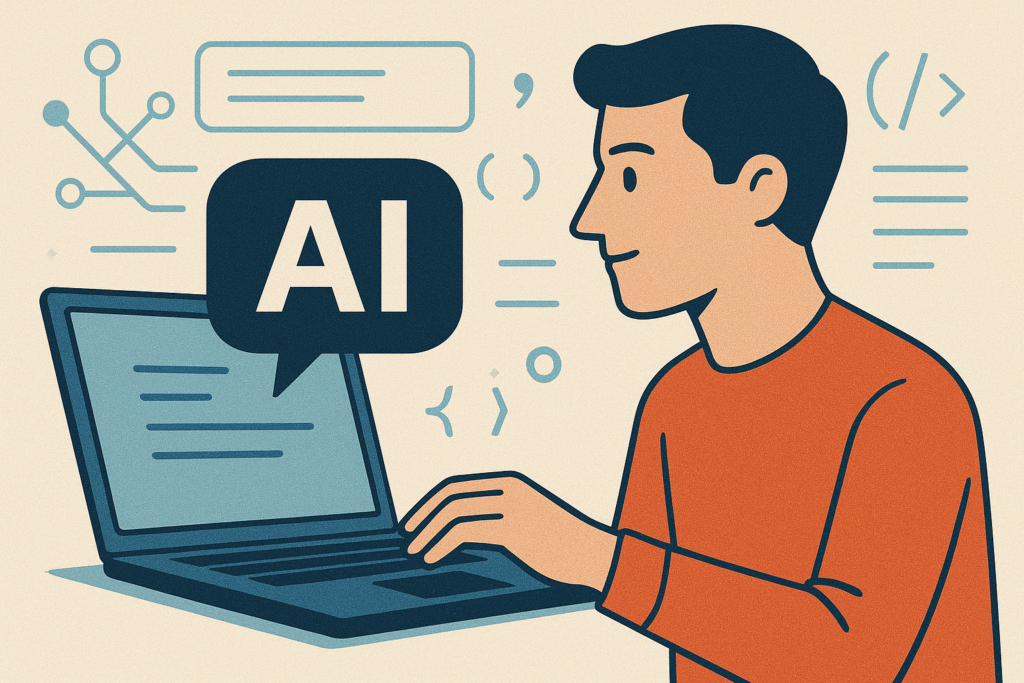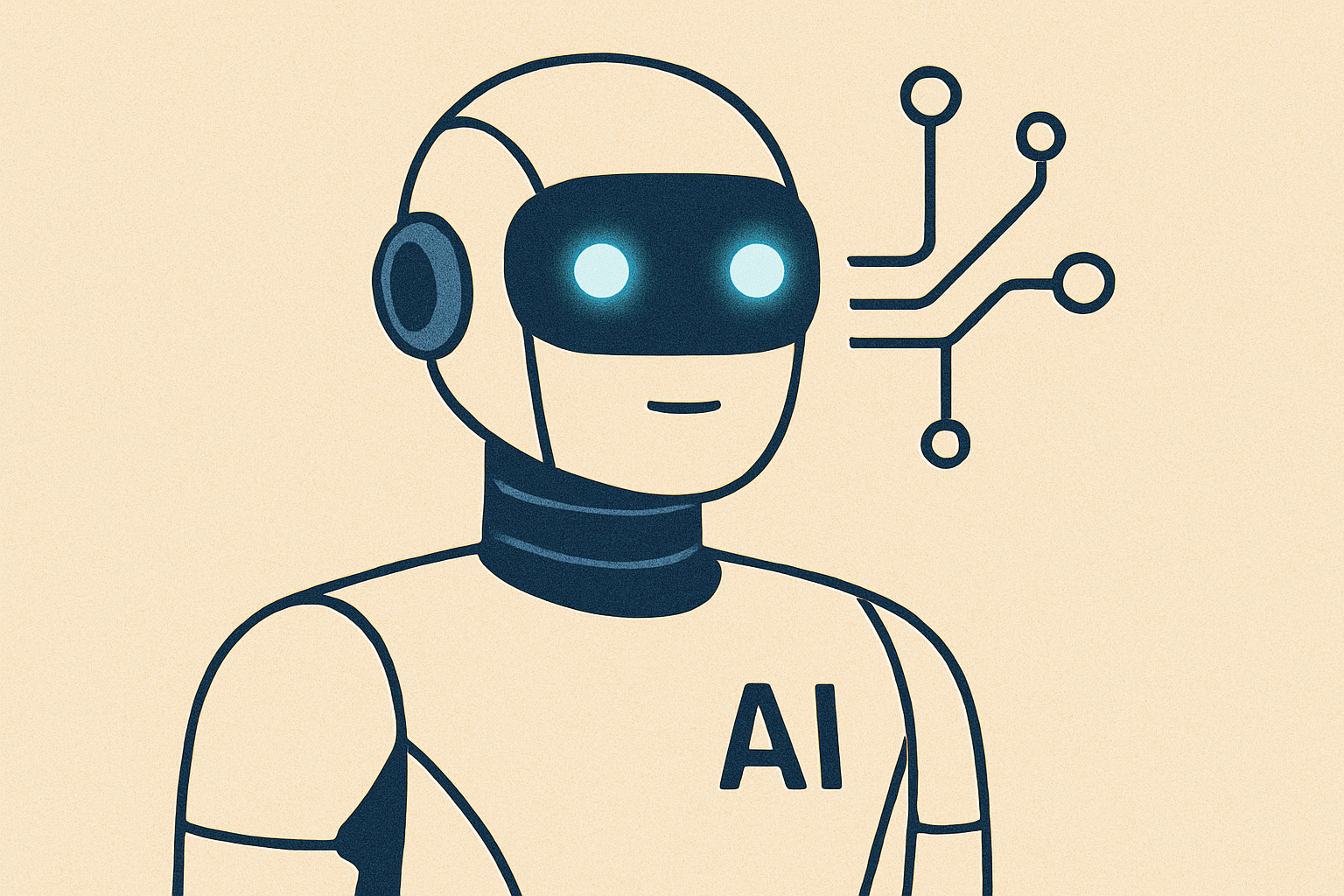Intro: The Rapid Evolution of AI & Automation
Artificial Intelligence (AI) and automation are redefining the modern workplace at breakneck speed. From self-learning algorithms to robotic process automation, the tools that once seemed futuristic are now everyday essentials.
As industries transform, so too must our skillsets. Thriving in this new era requires more than just technical knowledge—it demands adaptability, creativity, and a human-centred approach to problem-solving. Below are seven essential skills that professionals must master to remain relevant and resilient in the age of AI.
A great introduction to AI (Artificial Intelligence) course can be found here.

1. Prompt Engineering & AI Tool Fluency
In a world where AI models like ChatGPT, Midjourney, and Copilot are embedded into workflows, knowing how to effectively communicate with these tools is a game-changer. Prompt engineering—the craft of designing inputs that produce meaningful, high-quality outputs from AI—is rapidly becoming a core professional competency. Pair this with fluency in a growing suite of AI platforms, and you’re not just using tools—you’re orchestrating powerful outcomes.
Interested in prompt engineering? Take this great course. Click here.
2. Human-Centred Decision-Making
AI excels at optimisation, but it lacks empathy, ethics, and context. That’s where humans must step in. Human-centred decision-making ensures that technology serves people, not the other way around. It means factoring in the social, emotional, and ethical dimensions of decisions, especially when automating services that impact real lives. Leaders who can bridge this gap between logic and compassion will be in high demand.
3. Data Storytelling
Data is the new oil—but raw data is meaningless without interpretation. Data storytelling is the art of translating complex information into clear, engaging narratives that drive action. This involves combining data analytics with design thinking and communication skills. Whether you’re persuading stakeholders or guiding strategy, being able to tell the story behind the numbers gives you an edge AI alone cannot replicate.

A great course about data is Data Science and Machine Learning.
4. Agile Leadership
In fast-paced, tech-driven environments, rigid hierarchies and waterfall plans crumble. Agile leadership is about embracing flexibility, rapid iteration, and team empowerment. It means fostering a culture of feedback, experimentation, and continuous improvement. Agile leaders don’t just react to change—they anticipate and lead through it, aligning teams with clarity and purpose amid uncertainty.
5. Interdisciplinary Thinking
Problems in the AI era are rarely confined to one domain. The future belongs to those who can draw connections across fields—merging knowledge from technology, psychology, business, ethics, and design. Interdisciplinary thinkers can synthesise diverse perspectives to craft innovative, holistic solutions. In a world of specialists, the generalist who understands how pieces fit together becomes indispensable.
6. Personal Branding & Visibility
As work becomes more digital and decentralised, your online presence becomes your professional handshake. Building a strong personal brand—through content creation, thought leadership, and consistent engagement—can amplify your influence and attract opportunities. In an AI world where resumes are screened by algorithms, your visibility and credibility online often speak louder than your CV.
7. Continuous Learning Mindset
Finally, and perhaps most importantly, is the mindset of lifelong learning. AI and automation are evolving daily, and the skills of today may be outdated tomorrow. The most successful professionals will be those who stay curious, proactively upskill, and embrace change. This mindset is less about mastering every new tool and more about becoming adaptable, resilient, and ready to grow at every turn.
FAQ AI
Q1: Why are these 7 skills important in the age of AI?
A: As AI and automation reshape industries, these skills empower professionals to stay relevant, think critically, and work alongside intelligent systems while adding uniquely human value.
Q2: What is prompt engineering, and why should I learn it?
A: Prompt engineering is the ability to craft effective queries or instructions for AI tools to get accurate and useful outputs. Mastering this helps you maximise productivity with AI systems like ChatGPT or Copilot.
Q3: How is human-centred decision-making different from traditional decision-making?
A: Human-centred decision-making emphasises empathy, ethics, and social impact, ensuring that AI solutions serve people fairly and inclusively rather than just focusing on efficiency or profits.
Q4: What exactly is data storytelling?
A: Data storytelling is the practice of transforming data into compelling narratives using visuals and context, making insights easier to understand and act upon for non-technical audiences.
Q5: What does agile leadership involve in an AI-driven world?
A: Agile leadership is about being flexible, responsive to change, and promoting a culture of experimentation and continuous improvement. It’s key to navigating the fast-paced digital landscape.
Q6: Why is interdisciplinary thinking so valuable now?
A: Because problems today span multiple domains, combining knowledge from different fields (like tech, business, and psychology) leads to more innovative and well-rounded solutions.
Q7: How can I build a strong personal brand?
A: Share insights online, engage in thought leadership, maintain a consistent presence on platforms like LinkedIn, and showcase your expertise through blogs, talks, or portfolio work.
Q8: What does a continuous learning mindset look like in practice?
A: It means regularly updating your skills, being curious, staying informed about emerging tech, and embracing new tools, even if they’re outside your current expertise.
Q9: Do I need to be a tech expert to thrive in the AI era?
A: No. While tech fluency helps, success often comes from combining human creativity, ethical thinking, communication, and adaptability with a basic understanding of AI tools.
Q10: How can organisations support employees in developing these skills?
A: Companies can offer training programs, foster open learning cultures, encourage cross-disciplinary collaboration, and give employees access to AI tools and experimentation opportunities.
Conclusion
The future of work isn’t just about competing with machines—it’s about working alongside them. Those who develop these seven skills will not only survive the AI revolution—they’ll lead it. The key lies in blending the best of what machines offer with the irreplaceable depth of human insight, creativity, and values.
Useful Links
- Interested in Cybersecurity? AI is becoming a very important tool in this environment as well. Check out this blog post.

